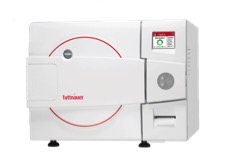Emerging viruses, like H1N1, Ebola, and the COVID-19, have been on the rise in the past several years. With this increase, numerous laboratories are creating systems for lab-developed testing capabilities (LTDs). Now more than ever, labs need to have robust equipment that they can trust.
In December of 2019, laboratories confirmed that there were several cases of COVID-19 in Wuhan, China. The following month the World Health Organization (WHO) declared the virus a Public Emergency of International Concern. With Coronavirus beginning to spread, researchers collected fluid samples from patients in Wuhan and began research for early detection, vaccines, and drug development.
RT-PCR Testing
For testing of the virus, researchers isolated virus particles from the samples and used RT-PCR. RT-PCR, otherwise known as Reverse Transcriptase PCR, is a type of polymerase chain reaction that measures RNA expression levels. The technique is used to study gene expression and to diagnose diseases such as COVID-19. During this process, the sample collected from the patient's throat or nasal passage is mixed with a solution that extracts the RNA from cellular debris and other molecules.
Members of the Heidolph Hei-MIX Series have gentle vortexing or orbital motion that assists in the extraction of RNA without degrading nucleic acids.

|
 | Sterilization There are numerous kinds of sterilization methods, but one of the most efficient and fastest solutions is steam. Autoclaves, otherwise known as steam sterilizers, use steam under pressure to kill harmful bacteria, viruses, fungi, and spores on items placed inside the pressure chamber. These autoclaves can sterilize a wide range of components, including plastic, liquids, tools, clothing, and glass. |

|
The Steam Sterilization process contains three phases:
Conditioning Phase: During the first phase of sterilization, the air is removed from the chamber using a vacuum or a series of steam flushes and pressure pulses.
Exposure Phase: After the removal of air, steam is admitted, rapidly increasing pressure and temperature. Items are held in the chamber for a required amount of time after the set temperature is achieved.
Exhaust Phase: During the final phase, steam is removed, which causes the chamber to depressurize and items to dry.
Heidolph Tuttnauer Autoclaves provide a fast, safe, dependable, and convenient means to sterilizing liquids, media, instruments, glassware, clothing, and hazardous waste. The line includes a wide range of models, including the Benchtop Lab Line to Industrial sized standing autoclaves.
With a lot of unknowns currently in the world, one thing is sure that your Heidolph team is here for you. Heidolph's Solution Specialists are available to discuss all technical questions, applications, and needs through virtual demonstrations. To schedule a virtual demonstration, email hello@heidolph.com.